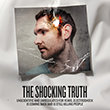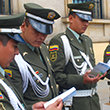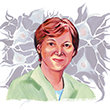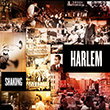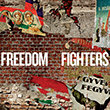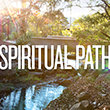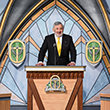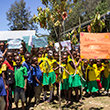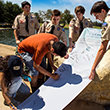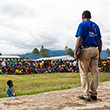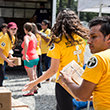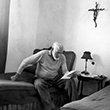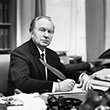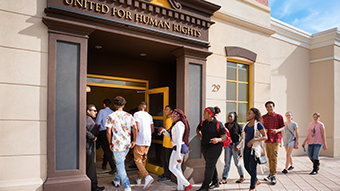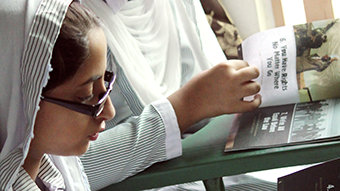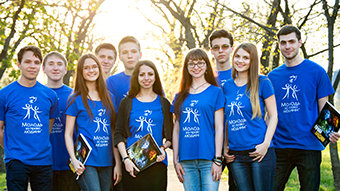
Augustine Brian was working for an international Christian relief organization in Papua New Guinea in 2013 when a group of rogue policemen beat him, shattering his jaw so badly he couldn’t eat solid food for 10 weeks. The brutal officers were never brought to justice.
But there was a silver lining to Brian’s harrowing experience. “It gave me a reason to advocate for human rights at all costs,” said the 30-year-old native of Papua New Guinea, about 100 miles north of Australia and one of the world’s least explored countries. “If police and corrupt politicians can walk away free, there is no one to stop them but individuals such as me.”
In 2015, while searching online for human rights resources, Brian stumbled upon Youth for Human Rights International a program of United for Human Rights, a nongovernmental organization sponsored by the Church of Scientology International. The organization mailed him human rights information kits, educational packages, DVDs and booklets.
Brian, who is a health education officer with World Vision, a Christian development and advocacy group active in 90 countries, wasted little time in getting to work. He began by educating people about human rights in Kerenda, his ancestral village in the Southern Highlands Province.
Brian disseminated information about the principles enshrined in the 1948 United Nations Universal Declaration of Human Rights. The 30-point declaration holds that people everywhere are equally entitled to their human rights without any discrimination.
Human rights and public health are inextricably linked in rural village communities of Papua New Guinea, whereas many as 87 percent of the nation’s 7.4 million people live. Villagers who suffer from tuberculosis and HIV are ostracized because ancient tribal beliefs clash with the scientific understanding of diseases. Women are particularly vulnerable.
This past October, Brian participated in the Southern Highlands Stakeholders Open Forum on Sorcery-Related Violence and Killings, organized by the local diocese of the Catholic Church and attended by the U.S. ambassador to Papua New Guinea.
On December 1, Brian joined Catholic Church leaders and officials of the National Tuberculosis Program at an event to commemorate World AIDS Day. Brian led a World Tuberculosis Day march, that attracted more than 2,000 students and teachers from two provincial primary schools.
“This was the most successful event that we have ever conducted,” Brian quoted the government’s assistant provincial health advisor as saying.
This past May, the police officer in charge of the provincial Royal Papua New Guinea Constabulary Office of the Family and Sexual Violence Unit offered Brian an apology for the police brutality he suffered three years ago.
“They often abuse people and use threats, and it’s a violation of human rights,” the officer, Sergeant Bongi, stated in a letter. “I would like to partner with you to further educate my police.”

